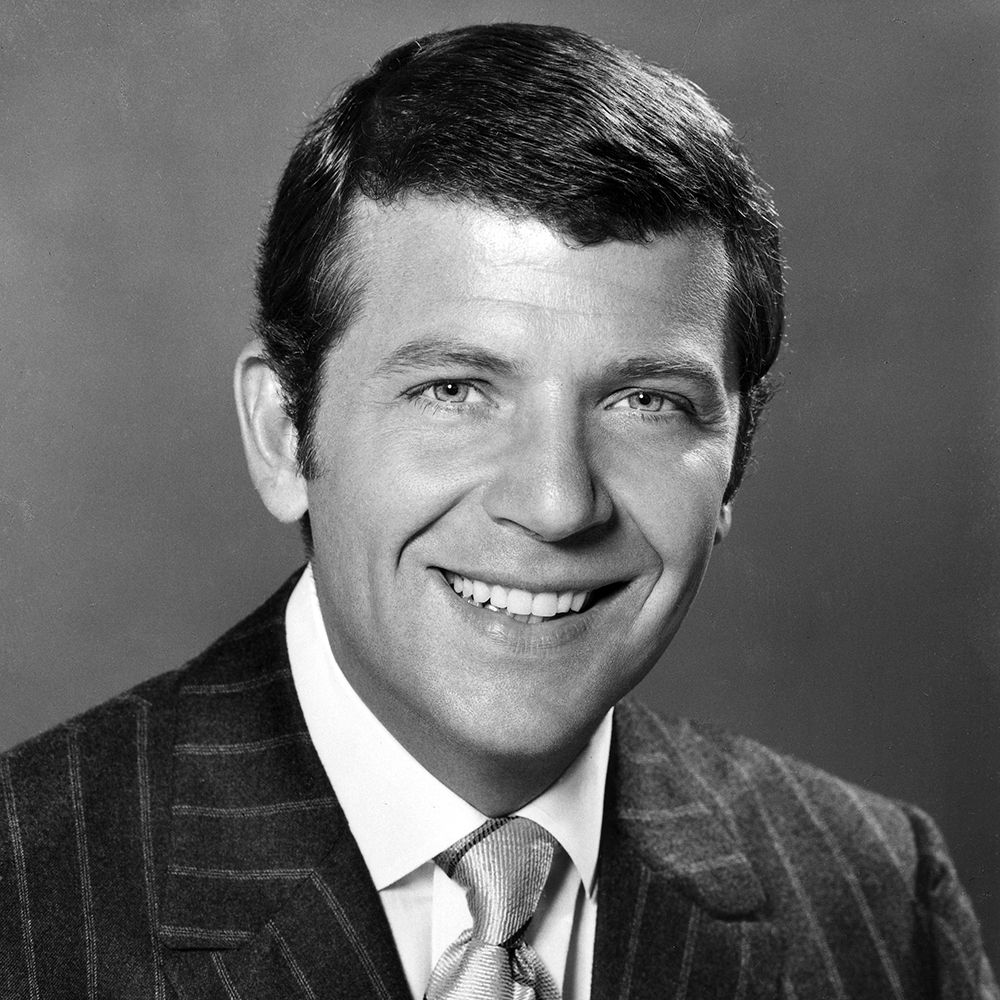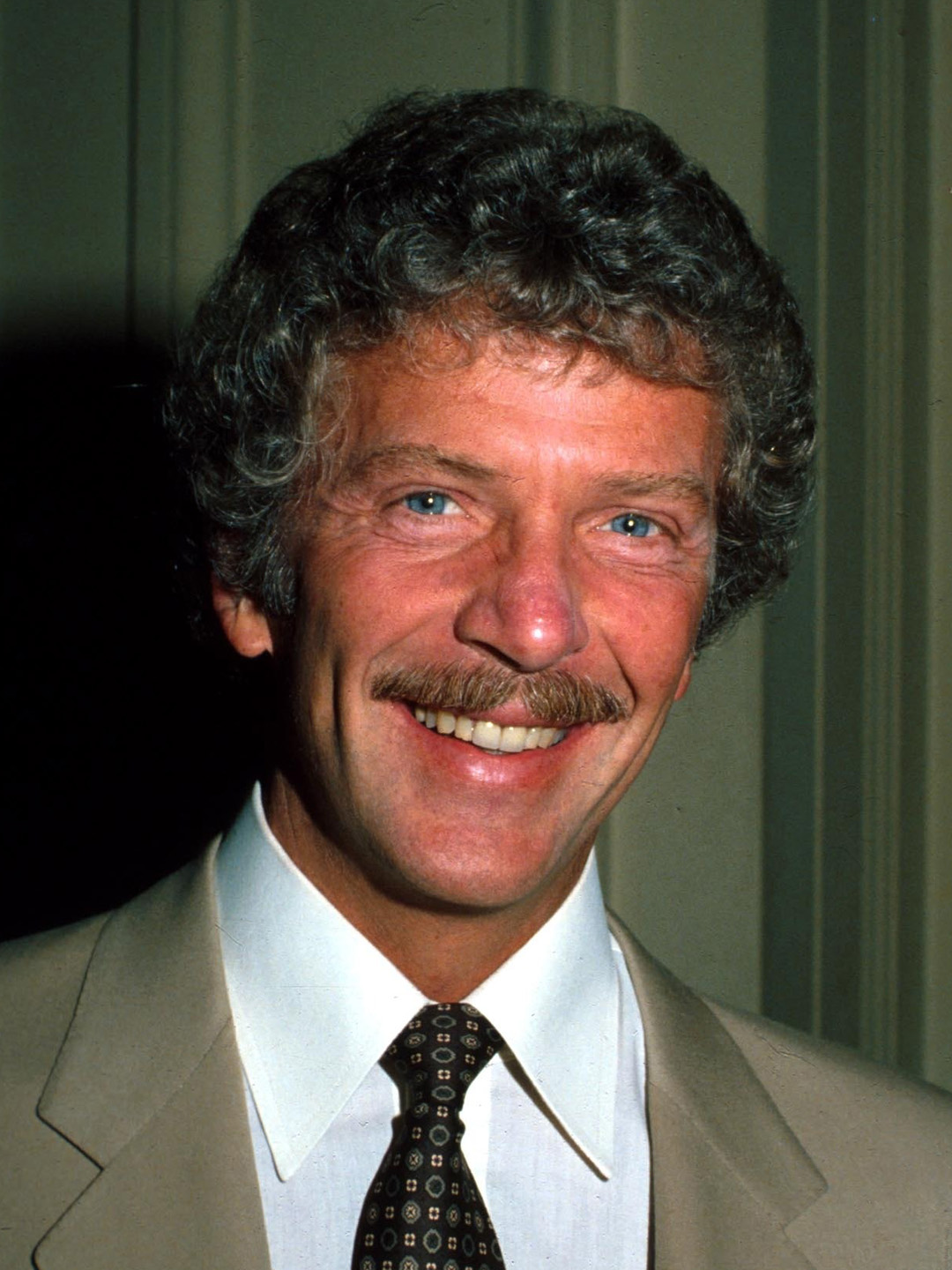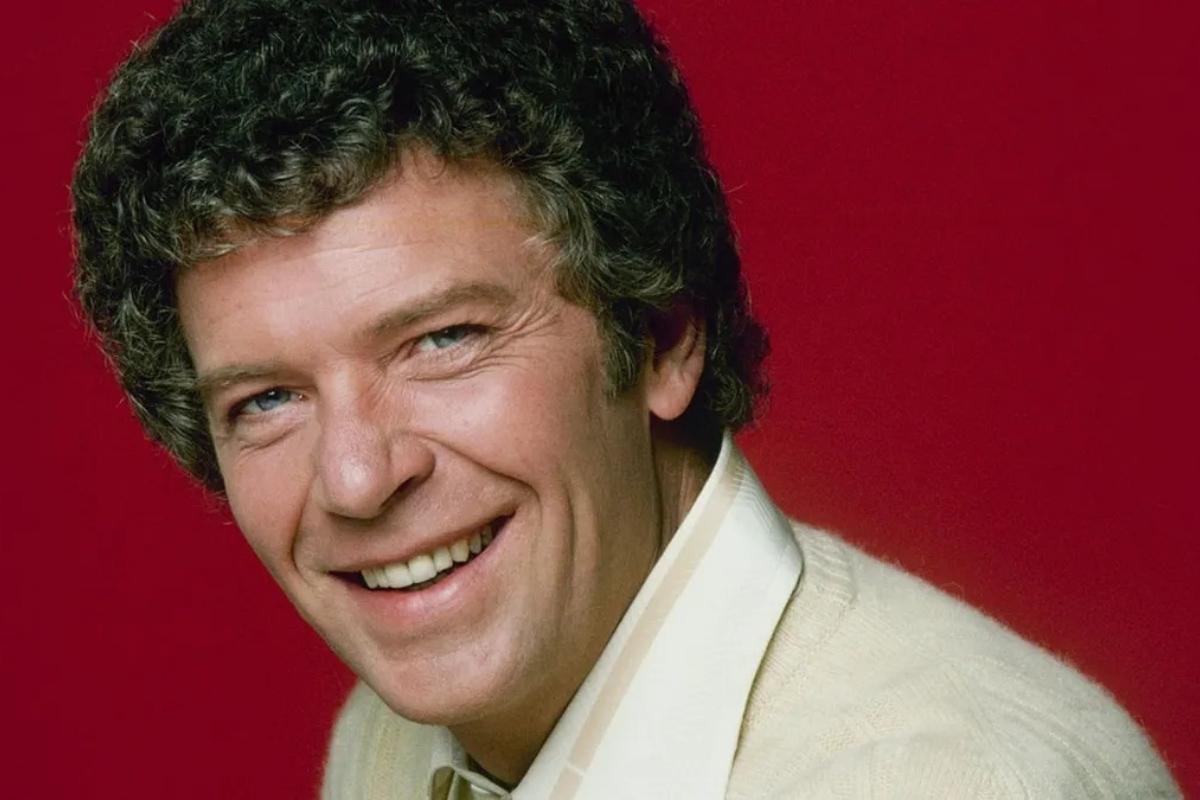Robert Reed - Uncovering The Person Behind The Persona
For many people who grew up watching television, a certain kind of warmth comes with remembering the familiar faces that appeared on screen, particularly those who played parental figures in popular family comedies. There is, you know, a comfort in those memories, a sense of something truly settled and wholesome that seems to stretch across the years. But sometimes, what we see on our screens is just a small piece of a bigger picture, a carefully put-together performance that might not tell the whole story of the person bringing the character to life.
The individual known as Robert Reed, for instance, often comes to mind when we think about those television dads who seemed to have everything figured out. He was, in a way, the quintessential father figure for a generation, someone who, more or less, embodied a particular kind of American ideal on a very popular program. Yet, as time has gone on and more details have come to light, it seems there was quite a bit more to the man himself than the cheerful, steady presence we were used to seeing each week.
This deeper look at Robert Reed, the person, rather than just the well-known character he played, helps us, you know, get a better sense of the various challenges and feelings that can come with being a public figure. It gives us a chance to consider the pressures that might be there when a person’s public image is so very different from their private experiences, offering a slightly different perspective on what it means to be a performer in the public eye.
- Joe Rogan Political Stance
- Xhmaster
- Alex Paige Moore Networth
- Is Brad Pitt An Only Child
- Chinenye Nnebe Husband And Child
Table of Contents
- The Life of Robert Reed - A Look Behind the Scenes
- Was Robert Reed Content with His Iconic Role?
- What Was Robert Reed's Stance on Other Projects?
- Robert Reed - A Complex Personality Off-Screen?
- How Did Robert Reed's Personal Life Unfold?
- What Did Robert Reed Really Think of The Brady Bunch Scripts?
- Robert Reed and Public Perception - More Than Meets the Eye?
The Life of Robert Reed - A Look Behind the Scenes
When we think about Robert Reed, many people, you know, picture the kind, wise father from a well-loved television show. This public image was, for all intents and purposes, a comforting one, presenting someone who seemed to have a firm grasp on family life and all its ups and downs. However, the actual person who inhabited that role, the individual known as Robert Reed, experienced a life that held, in a way, its own set of personal circumstances and professional feelings, which were, in some respects, quite different from the sunny portrayal on screen.
His biography, like that of many people who find themselves in the public eye, has elements that were, apparently, kept from the broader public for a long time. There are aspects of his personal journey and professional experiences that, basically, paint a more complete picture of who he was, beyond the character that made him a household name. This fuller account helps us, as a matter of fact, appreciate the individual’s journey with a little more depth.
Personal Details and Bio Data of Robert Reed
| Detail | Information |
|---|---|
| Known For | Playing a beloved television father figure |
| Reported On-Set Demeanor | Often difficult, disgruntled |
| Professional Opinion of Sitcom | Thought it was beneath him, often absurd |
| Personal Life Aspects | Married a couple times, preferred men |
| Notable Claim Source | Joel Thurm's memoir |
Was Robert Reed Content with His Iconic Role?
It seems that the individual known as Robert Reed, who was so very familiar to television audiences, held some quite specific feelings about the work he did on a particular family sitcom. Accounts from, you know, documentaries about the program have suggested, over and over again, that he was not, in fact, fond of his time doing that show. This information, in a way, offers a different perspective on what might have been going on behind the scenes, contrasting with the cheerful family scenes that viewers saw each week.
Interestingly enough, while there were these reported feelings of displeasure concerning the main sitcom, another person who worked with him, Florence Henderson, had a slightly different take on his professional satisfaction. She mentioned, apparently, that Robert Reed actually found a lot of joy and liked doing the variety show version of the program. This suggests, in some respects, that his feelings about his work were not, basically, a single, unchanging thing, but rather something that could shift depending on the specific project he was involved in, which is, you know, a rather common experience for many people in creative fields.
To think about a performer’s feelings regarding their work, it’s, you know, a bit like looking at different sides of a coin. One side might show the public success and the widespread appreciation for a role, while the other side could reveal the private struggles or professional dissatisfactions that the person might have been experiencing. It's not, you know, always a straightforward matter, and sometimes the individual playing the part has a very, very different relationship with the material than what the audience might assume.
What Was Robert Reed's Stance on Other Projects?
Beyond his most famous role, Robert Reed, it seems, had other professional experiences that also came with their own set of feelings and opinions. There was, for example, a situation involving a young performer named John Travolta. It has been said, basically, that Robert Reed was not at all eager to play what some might call a less prominent part when John Travolta was also involved in a project. This claim, as a matter of fact, gives us a little insight into his professional aspirations and perhaps his sense of his own standing in the entertainment world.
This particular claim about Robert Reed’s feelings regarding his position relative to John Travolta was, apparently, put forth by a person named Joel Thurm. Joel Thurm included this account in a new book he wrote, titled, you know, "Sex, Drugs & Pilot Season." So, the information comes from a published source, which, basically, adds a specific context to this aspect of Robert Reed’s professional life. It shows, in a way, that even well-established performers can have very strong feelings about their roles and their perceived importance within a production.
The idea of playing "second fiddle," as it's often called, is something that many people, in various fields, can probably relate to. It speaks to the feeling of being in a supporting role when one might, you know, wish to be more central, or perhaps to the challenge of sharing the spotlight, especially with someone who is just beginning to gain widespread attention. For Robert Reed, who was already a familiar face to many, this situation, it seems, was something he was not, you know, particularly keen on, which is, honestly, understandable for someone with a certain level of professional experience and recognition.
Robert Reed - A Complex Personality Off-Screen?
Reports from those who worked with Robert Reed on set suggest that his personality, when the cameras were not rolling, could be, you know, quite challenging. There are accounts that describe him as someone who was, in a way, very difficult to deal with during production. In fact, for this actor, the word "egomaniac" would, apparently, be an understatement, which, honestly, gives a rather strong impression of how his behavior was perceived by others in the working environment. This portrayal of his on-set demeanor contrasts quite a bit with the gentle character he played.
When we consider the nature of professional interactions, especially in a collaborative setting like a television production, the presence of someone who is described as difficult can, you know, have a significant effect on the atmosphere. It suggests that the day-to-day working experience for those around Robert Reed was, perhaps, not always smooth or easy. This kind of information, basically, helps to fill out the picture of the individual, showing that his professional life had, in some respects, moments of considerable tension, which is, you know, a reality for many people in demanding work situations.
How Did Robert Reed's Personal Life Unfold?
Away from the bright lights of the television set, Robert Reed’s personal life, like anyone’s, held its own set of experiences and relationships. It is known, for instance, that he was married on a couple of occasions. However, it has also been stated that he, you know, had a preference for men. This aspect of his personal journey, basically, provides another layer to understanding the individual, showing that his private life held complexities that were, perhaps, not widely discussed during his public career, which is, honestly, often the case for public figures.
Furthermore, there is a mention that he had, you know, a lengthy period of something being "on and off." This phrasing, while not giving specific details, suggests that there was, in a way, a relationship or a situation in his personal life that was, apparently, characterized by periods of connection and disconnection over a long stretch of time. Without adding new context, it’s fair to say that this indicates a certain kind of enduring, yet perhaps inconsistent, aspect to his private world, which, you know, can be a part of many people’s personal stories.
The interplay between a public persona and a private reality is, basically, a recurring theme for many who live their lives in the public eye. For Robert Reed, the image of the wholesome family man was so deeply ingrained in the public consciousness, yet his personal life, with its relationships and preferences, tells a story that was, in some respects, quite different from that public presentation. This difference highlights, you know, the often-present gap between how someone is perceived by many and how they truly live their own life, which is, honestly, a very common human experience.
What Did Robert Reed Really Think of The Brady Bunch Scripts?
It seems that Robert Reed, the individual who played the well-known father figure, harbored significant dissatisfaction regarding the very scripts he was given for the popular family program. He was, apparently, quite disgruntled, and reports indicate that he was, you know, rather difficult to work with on the set of that show. A major reason for this reported difficulty was his personal view that the program itself was, in a way, beneath his professional capabilities and that the content was, very often, simply absurd. This perspective, basically, shows a strong disagreement with the creative direction of the series.
There are accounts that describe how the man who played the father character, Robert Reed, would become, you know, absolutely livid. He would, apparently, page through the most recent script for "The Brady Bunch" and then, in a very direct manner, lash out at the person who created the show. These moments of intense anger and confrontation over the written material suggest a deep-seated frustration with the quality or nature of the stories he was expected to perform. He was, as a matter of fact, quite demanding in these interactions, expressing his strong displeasure with the content.
This kind of intense reaction to professional material, where one feels the work is, you know, not up to a certain standard, can be a source of considerable strain. For Robert Reed, it appears this feeling was so strong that it led to direct confrontations with the show's creator, which, basically, indicates a level of professional disagreement that went well beyond minor complaints. It paints a picture of a performer who was, in some respects, deeply invested in the quality of his work, even if his methods of expressing that concern were, apparently, quite forceful.
Robert Reed and Public Perception - More Than Meets the Eye?
When thinking about public figures, it’s interesting how certain perceptions can form, sometimes without any direct information being shared. There is, for instance, a personal anecdote from someone who, as a child, felt they had, you know, a pretty good intuition about certain things, often referred to as "gaydar." This person states that they knew, without being told directly, that both Raymond Burr and Robert Reed were gay. This suggests that there might have been, in a way, subtle cues or impressions that, apparently, contributed to this feeling, perhaps even something in their voices, as the person mused.
This idea of picking up on subtle cues, even as a child, speaks to the various ways people can, you know, form impressions about others, especially those in the public eye. It highlights how aspects of a person’s presentation, like their voice, might, in some respects, contribute to a sense of who they are, even if no explicit statements are made. For Robert Reed, this personal observation adds another layer to the public’s varied perceptions of him, showing that some individuals had, basically, a sense of his private life even when it was not openly discussed.
Furthermore, there is a specific mention of Robert Reed appearing in a film where he, you know, portrays a character in a way that is described as "gaying it up to high heaven." This detail, basically, offers a glimpse into his professional choices and perhaps his willingness to take on roles that might have, in some respects, hinted at or openly explored aspects of his own personal identity, even if his public image was, at the time, quite different. It suggests a certain kind of performance where he was, apparently, able to express something that might have resonated with his own experiences, which is, honestly, a very powerful thing for an actor to do.
The journey of a public figure, from the roles they play to the life they lead away from the cameras, is, you know, often far more intricate than what the general public might initially see. Robert Reed’s story, with its reported professional dissatisfactions and its revealed personal preferences, helps us to consider that the people we watch on screen are, in a way, complex individuals with their own set of feelings, struggles, and private realities. It reminds us that there is, in some respects, always a person behind the persona, living a life that is, basically, their own, with all its various facets.
This article has explored various aspects of Robert Reed's professional and personal life, drawing from available accounts and observations. We've looked at his reported feelings about his most famous television role, contrasting his dislike for the sitcom with his enjoyment of the variety show. We also considered claims regarding his reluctance to be overshadowed in other projects, as detailed in Joel Thurm's memoir. The discussion included his reported difficult on-set demeanor and the strong opinions he held about the quality of his work, particularly his frustration with the scripts he received. Furthermore, we touched upon details of his personal life, including his marriages and preference for men, and how these aspects might have been perceived, even subtly, by some. Finally, we noted a film role where he portrayed a character in a way that resonated with aspects of his personal identity. The aim was to present a more nuanced picture of Robert Reed, moving beyond the well-known character he played to consider the individual behind the public image.
- Juliana Palvin
- Kristen Korean Dancer Is It Married
- Aditi Mistrynude
- Subhashree Sahu New Viral Video
- Milaruby Reddit

Robert Reed - The Brady Bunch, Facts & Death

Robert Reed - Actor

23 Fascinating Facts About Robert Reed - Facts.net